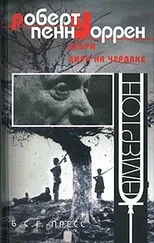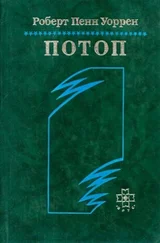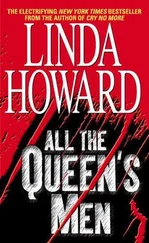Роберт Уоррен - All the king's men
Здесь есть возможность читать онлайн «Роберт Уоррен - All the king's men» весь текст электронной книги совершенно бесплатно (целиком полную версию без сокращений). В некоторых случаях можно слушать аудио, скачать через торрент в формате fb2 и присутствует краткое содержание. Жанр: Современная проза, на английском языке. Описание произведения, (предисловие) а так же отзывы посетителей доступны на портале библиотеки ЛибКат.
- Название:All the king's men
- Автор:
- Жанр:
- Год:неизвестен
- ISBN:нет данных
- Рейтинг книги:4 / 5. Голосов: 1
-
Избранное:Добавить в избранное
- Отзывы:
-
Ваша оценка:
- 80
- 1
- 2
- 3
- 4
- 5
All the king's men: краткое содержание, описание и аннотация
Предлагаем к чтению аннотацию, описание, краткое содержание или предисловие (зависит от того, что написал сам автор книги «All the king's men»). Если вы не нашли необходимую информацию о книге — напишите в комментариях, мы постараемся отыскать её.
All the king's men — читать онлайн бесплатно полную книгу (весь текст) целиком
Ниже представлен текст книги, разбитый по страницам. Система сохранения места последней прочитанной страницы, позволяет с удобством читать онлайн бесплатно книгу «All the king's men», без необходимости каждый раз заново искать на чём Вы остановились. Поставьте закладку, и сможете в любой момент перейти на страницу, на которой закончили чтение.
Интервал:
Закладка:
"Yes, sir," he said, hating me with the pig's eyes out of the swollen face. "Yes, sir," he said, and went to the box.
Suddenly Anne pulled herself loose from me, and I thought she was going to run. So I grabbed her again. "Oh, you're so wonderful," she said, in a harsh whisper, "so wonderful–you're grand–you bully the bullies–you cop the cops–you're wonderful–"
I stood there holding her, not listening, aware only of a weight in my middle like a cold stone.
"–you're so wonderful–and clean–everything is so wonderful and clean–"
I didn't say anything.
"–you're so damned wonderful–and clean and strong–oh, you're a hero–"
"I'm sorry I acted like a son-of-a-bitch," I said.
"I can imagine to what particular thing you are referring," she whispered in mock sweetness, underscoring the _particular__, setting it meticulously in my hide like a banderilla. Then she swung her face from me, and wouldn't look at me, and the arm I clutched might as well have belonged to a dummy in a show window, and the cold stone in my stomach was a stone in a deep well covered with slime, and the pig's eyes in the swollen, black-jowled face came back and hated me in the dull, mist-streaked night, and a horn moaned down the river, and in the cab Anne Stanton sat back in one corner, very straight and as far from me as possible, and the light from the street lamps we passed would flicker across her white face. She would not speak to me. Until we came to a street with a car track on it. Then she said, "Get out. You can catch some car here. I don't want you to take me home."
So I got out.
Five nights later I heard Anne Stanton's voice on the telephone.
It said, "Those things–those papers you said you had–send them to me."
I said, I'll bring them."
It said, "No. Send them."
I said, "All right. I've got extra photostat of one thing. Tomorrow I'll get photostat of the other paper and send them together."
It said, "A photostat. So you don't trust me."
I said, "I'll send them tomorrow."
Then there was the click, in the little black tube. Then the tiny, windy, humming sound which is the sound of space falling away from you, and of infinity, and of absolute nothingness.
Every night when I came into my room, I would look at the telephone. I would say to myself: _It is going to ring__. Once, even, I was sure that it had rung, for the tingle and stab of its ringing was in all my nerves. But it hadn't rung. I had merely fallen asleep. Once I picked up the thing and held it to my ear, listening to the tiny, humming sound which is the sound of the various things I have already mentioned.
Every night, at the desk in the lobby, I asked if there have been any numbers left for me. Yes, sometimes there were numbers. But never the right number.
Then I would go up to my room, where the telephone was and the brief case with the photostat and the affidavit from Memphis. I hadn't given that to the Boss yet. I hadn't even told him about it yet. Not that I was thinking about not giving it to him. I would give it to him. That was in the cards. But not yet. Not quiet yet. After the telephone had rung.
But it didn't ring.
Instead, after about a week, one night as I turned the corner of the corridor, I saw a woman sitting on the bench down beyond my door. I fumbled for my key, inserted it in the lock, and was about to enter when I was aware that the woman stood beside me. I swung toward her. It was Anne Stanton.
She had made no sound on the deep carpet. Not with her light foot.
"You gave me heart failure," I said, and swung the door wide, and added, "Come in."
"I thought you were so careful about my reputation," she said. "At least you claimed to be. Once."
"I remember," I said, "but come in anyway."
She walked into the room and stood in the middle of the floor with her back to me while I shut the door. I noticed that she had a brown manila envelope in her hand, with her bag.
No turning to me, she stepped to the desk by the wall and flung down the envelope. "There it is," she said. "The photostats. I brought them back. But I would have brought back the originals if you had trusted me with them."
"I know it," I said.
"It was awful," she said, still not turning to me.
I went across to her and touched her shoulder. "I'm sorry," I said.
"It was awful. You don't know."
I didn't know how awful. So I stood there just behind her and didn't dare to touch her again, even with the weight of my finger.
"You don't know," she said.
"No," I said, "I don't."
"It was awful." The she turned to put her wide eyes on me, and I had the impression of stumbling into a well. "It was awful," she said. "I gave them to him–those things–and he read them and then he just stood there–he didn't move–he didn't make a sound–and his face was white as a sheet and I could hear him breathing. Then I touched him–and he looked at me–he looked at me a long time. Then he said–he looked at me and said, 'You." That was what he said, 'You." Looking at me."
"God damn it," I said, "God damn it, what's he blaming you for, why doesn't he blame Governor Stanton?"
"He does," she said. "Oh, he blames him. That is what is so awful. The way he blames him. His father. You remember–you remember, Jack–" she reached out and laid her hand on my forearm–"you remember–our father–how he was–how he used to read to us–how he loved us–how he taught Adam and how proud he was on him–how he took all that time to teach Adam himself–oh, Jack, he sat there in front of the fire and I was a little girl and he would read to us and I put my head against his knee–oh, Jack–you remember?"
"I remember," I said "Yes," she said, "yes–and mother was dead and father did all he could–he was so proud of Adam–and now Adam–and now–" She released my arm, and stepped back and lifted her hands, putting her fingers to her forehead in a distracted gesture. "Oh, Jack, what Have I done?" she whispered.
"You did what you thought you ought to do," I said firmly.
"Yes," she whispered, "yes, that was it."
"It's done now," I said.
"Yes, it is done," she said, out loud, and her jaw closed with an expression which suddenly made her look like Adam, the mouth firm and sealed, the skin drawn and tight on the flesh, and she lifted her head to stare the world down, and I felt like bursting into tears. If that had been my habit.
"Yes," I said, "it's done."
"He'll do it," she said.
And I almost demanded, What, do what? For, for the moment, I had forgotten the reason that I had told Anne the facts, the reason that I had given her the photostats, the reason that she had shown them to her brother. I had forgotten that there was a reason. But I remembered now, and questioned, "You persuaded him?"
"No," she shook her head slowly, "no, I didn't say anything. I gave those things to him. He knew."
"What happened?"
"What I told you. He looked at me hard, and said 'You.' Just like that. Then I said, 'Adam, don't say it that way, you mustn't, Adam, you mustn't!' And he said, 'Why?' And I said, 'Because I love you, because I love him, love Father.' And he kept on looking at me, then said, 'Love him!' Then, 'Damn his soul to hell!' I called out, 'Adam, Adam,' but he turned his back on me, and walked across the room to his bedroom door and went in and shut the door. Then I went out and walked by myself, in the dark, for a long time. So I could sleep. For three days I didn't hear from him. Then he asked me to come to see him. I went, and he gave me back those things." She pointed to the manila envelope. "He told me to tell you that he would do it. To arrange it. That was all."
"That was a good deal," I said.
"Yes," she said, and moved past me toward the door. She put her hand to the knob, turned it, and drew the door ajar. She looked back at me, and said, "Yes, it was a good deal."
Читать дальшеИнтервал:
Закладка:
Похожие книги на «All the king's men»
Представляем Вашему вниманию похожие книги на «All the king's men» списком для выбора. Мы отобрали схожую по названию и смыслу литературу в надежде предоставить читателям больше вариантов отыскать новые, интересные, ещё непрочитанные произведения.
Обсуждение, отзывы о книге «All the king's men» и просто собственные мнения читателей. Оставьте ваши комментарии, напишите, что Вы думаете о произведении, его смысле или главных героях. Укажите что конкретно понравилось, а что нет, и почему Вы так считаете.





![Роберт Уоррен - Рассказы [Компиляция]](/books/419993/robert-uorren-rasskazy-kompilyaciya-thumb.webp)


